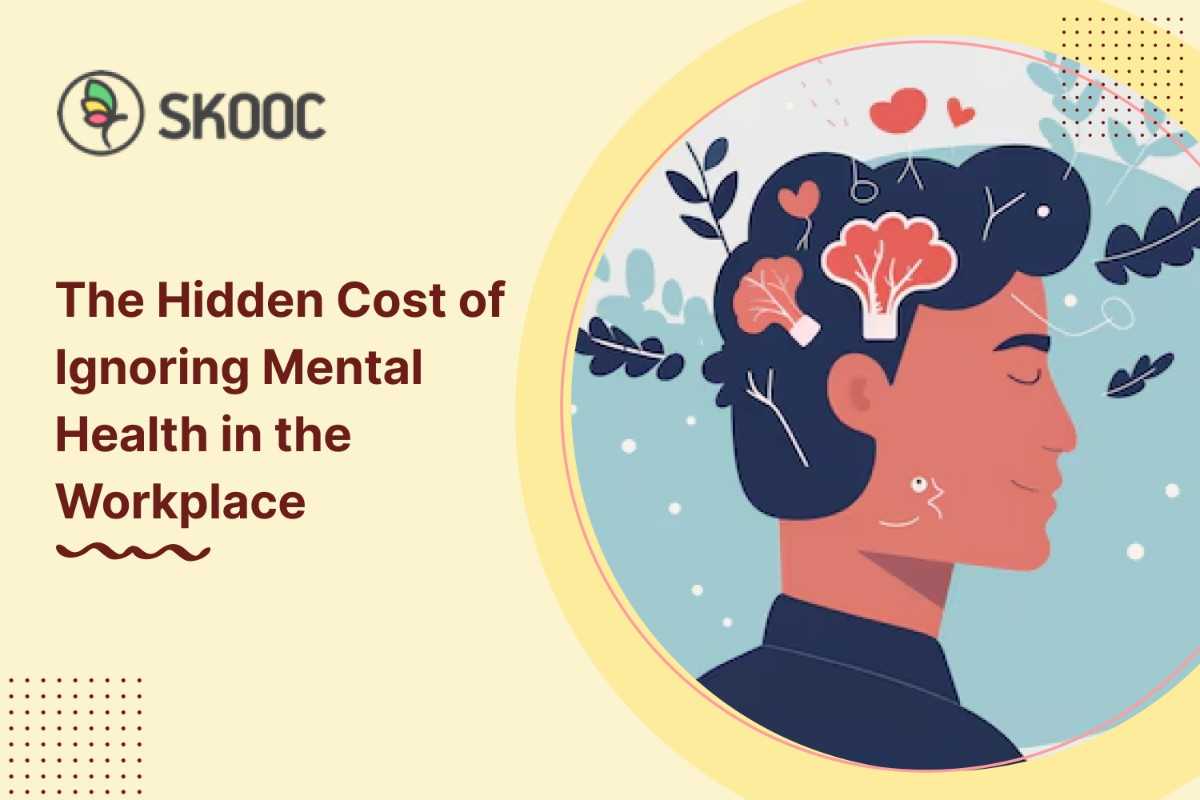The Hidden Cost of Ignoring Mental Health in the Workplace
It was just another Monday morning in the bustling office of a marketing agency. Teams huddled around laptops, emails poured in, and deadlines loomed over every desk. For most, it was business as usual. But for Maya, a talented graphic designer, the weight of stress was becoming unbearable. Every project felt like an insurmountable mountain, every task stretched her thin. Behind her forced smile, Maya was struggling with anxiety and burnout. No one at the office noticed—until the day she didn’t show up.
Maya’s story is not unique. In many workplaces around the world, mental health issues like anxiety, stress, and depression are silently brewing beneath the surface. Corporate well-being programs have become essential. Employees, like Maya, often feel the pressure to keep pushing forward, fearing that admitting to mental health struggles might make them seem weak or less capable. But what if ignoring these struggles is costing companies more than they realise?
The True Cost of Ignoring Mental Health
The employees' well-being program is important as their well-being is not just a personal matter—it directly impacts the success of businesses. Research shows that ignoring mental health in the workplace can lead to decreased productivity, higher absenteeism, low morale, and even increased employee turnover. According to the World Health Organization, depression and anxiety cost the global economy approximately $1 trillion each year in lost productivity. But beyond the numbers, the human cost is even more staggering.
Consider the ripple effect of one employee’s mental health decline. When Maya’s anxiety reached its peak, her performance started to slip. She missed deadlines, became disengaged in meetings, and her creativity—a once-vibrant asset—began to fade. This not only affected her but also placed additional pressure on her teammates. As her mental health deteriorated, the entire team’s output suffered, leading to more stress and tension in the office.
But the most significant cost was Maya herself. After months of silent suffering, Maya finally reached a breaking point. She took a leave of absence, unsure if she would return. For the company, this meant not only losing a key employee but also the time and resources needed to onboard and train someone new.
Why Mental Health Matters
Mental health, once a taboo topic in corporate environments, has now become one of the most critical factors for workplace success. Today’s fast-paced work culture often celebrates the grind, equating long hours and relentless ambition with dedication. But this “always-on” mentality can be detrimental, pushing employees beyond their limits and compromising their mental well-being.
Healthy employees are happy employees. They are more creative, productive, and loyal. Through corporate wellness programs, mental health is prioritised in the workplace, and employees feel valued, supported, and motivated to bring their best selves to work. In contrast, when mental health is ignored, the consequences—both personal and professional—can be devastating.
The Role of Workplace Counseling
So, what can companies do to avoid the hidden cost of mental health neglect? The answer lies in proactive mental health support—and workplace counselling is a key solution.
Workplace wellness counselling offers employees a confidential, safe space to discuss their mental health struggles and seek professional guidance. With services like Skooc, employees can access online counselling tailored to address work-related stress, anxiety, burnout, and even interpersonal conflicts. When employees feel supported, they are more likely to seek help before their struggles escalate into crises.
Creating a Culture of Mental Health Awareness
It’s not just about offering counselling services; it’s about creating a culture where mental health is openly discussed and supported. Companies need to foster an environment where employees feel safe talking about their mental health without fear of judgment or stigma. This starts with leadership. When managers and executives prioritise mental well-being—whether through open communication, mental health days, or regular check-ins—it sets a powerful example for the entire team.
Moreover, training managers to recognize signs of mental health challenges, such as changes in behaviour or work performance, can make a significant difference. Often, employees like Maya don’t know how to ask for help or may be afraid to do so. When managers are equipped to offer support, they can step in early and prevent more serious issues down the line.
The Benefits of Addressing Mental Health
Investing in mental health pays off—both for employees and the business. Companies that prioritise mental health support see higher levels of employee engagement, increased retention rates, and improved overall performance. Additionally, employee wellness programs can reduce absenteeism and help employees manage their stress more effectively, leading to a healthier and more harmonious work environment.
Maya’s story could have taken a different path if her company had prioritised mental health from the beginning. With the right support, she could have managed her anxiety before it spiralled into burnout. Workplace counselling would have provided her with the tools to cope, and her team would have thrived alongside her.
The Cost of Care
Ignoring mental health in the workplace comes at a price—a price far greater than missed deadlines or lost productivity. It affects the very heart of a company: its people. By investing in online counselling for mental health support through services like Skooc, businesses can ensure that their employees are not just surviving, but thriving.
The message is clear: mental health is not a luxury, it’s a necessity. When companies recognize this and take steps to address it, the return is immeasurable—not just in financial terms, but in the well-being of their most valuable asset: their people.
As Maya’s story reminds us, the cost of ignoring mental health is too high. But with the right support, the rewards of prioritising it are endless.

